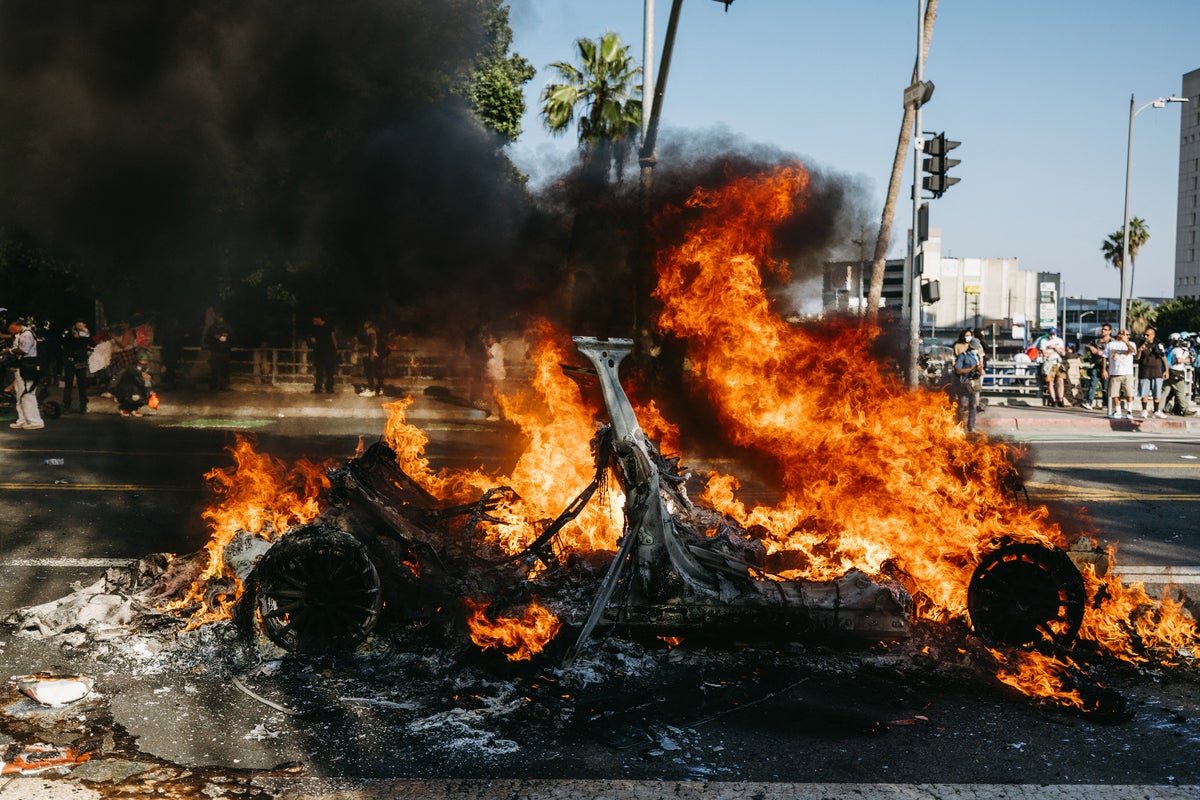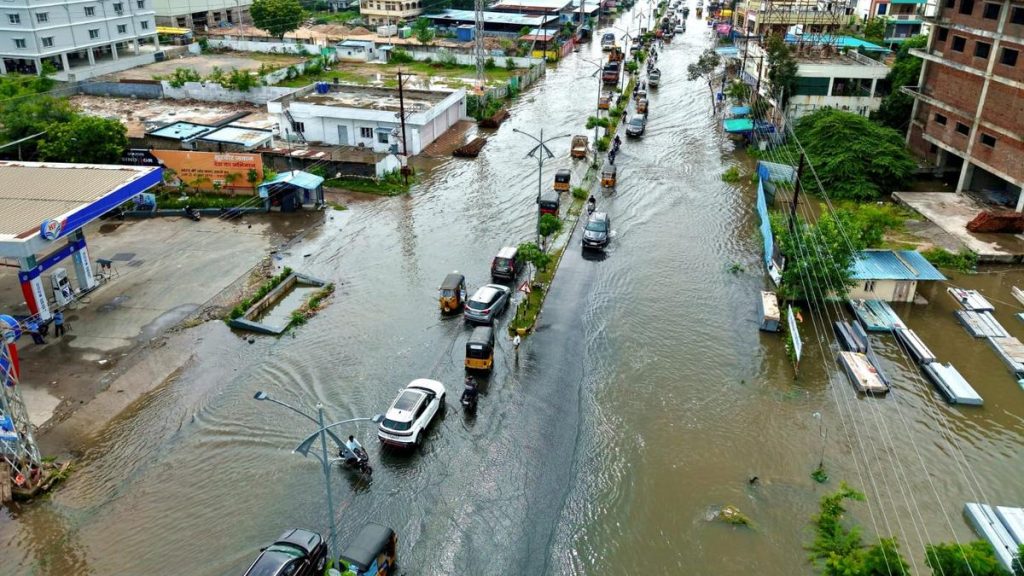Now Reading: Why Waymo Robotaxis Burned Completely During Los Angeles Protests
-
01
Why Waymo Robotaxis Burned Completely During Los Angeles Protests
Why Waymo Robotaxis Burned Completely During Los Angeles Protests

Quick Summary
- During protests in Los Angeles,five Waymo robotaxis were torched,leading to extreme fires caused by “thermal runaway” in their lithium-ion battery packs.
- Thermal runaway occurs when a battery cell is punctured or overheated, triggering a chain reaction where temperatures exceed 1,000 degrees Celsius.
- The intense heat vaporized most parts of the cars including roofs and body panels while releasing toxic hydrogen fluoride-a dangerous gas that can cause severe respiratory harm. levels near EV fires can reach fatal concentrations of 150 to 450 ppm.
- Firefighting such incidents requires extensive water (30,000-40,000 gallons) due to the difficulty in cooling all affected battery cells individually. Conventional flame-retardants are ineffective for lithium-ion batteries.
- Battery architecture impacts fire severity; Waymo’s Jaguar I-Pace cars use “skateboard” designs with batteries placed on the floor-heating upward and outward during combustion.
- Despite software safety measures and industry design improvements, thermal runaway remains challenging to control under intentional sabotage or manufacturing defects.
- Recent incidents involved protesters using incendiary devices during demonstrations against federal immigration raids.
Indian Opinion Analysis
The intense fires resulting from sabotaged electric vehicles highlight both technological vulnerabilities and evolving public safety concerns as India proactively embraces EV adoption amidst global trends toward sustainability. While current data suggests electric cars catch fire less often than gasoline vehicles thermal runaway poses unique hazards that require advanced emergency response systems which India may need to develop urgently-especially given urban density challenges typical across cities like Mumbai or Delhi.As India’s policymakers promote EV infrastructure through incentives like FAME subsidies and set transition goals for transport electrification by 2030, cases such as these raise critical questions about fire preparedness standards nationwide. Industry collaboration between manufacturers designing safer battery chemistries and agencies enhancing risk-management protocols could serve as pivotal steps forward in reducing unintended hazards amid rising EV uptake rates domestically.
This event also underscores possible societal implications where reliance on autonomous technologies intersects protest activities or public unrest scenarios-a factor authorities might keep cognizant of as vehicular autonomy discussions mature within Indian regulatory landscapes over time.

























